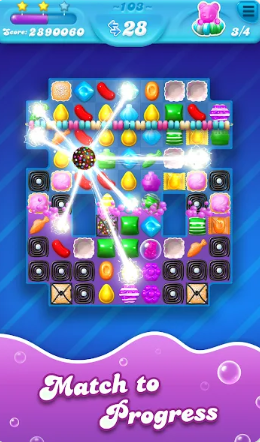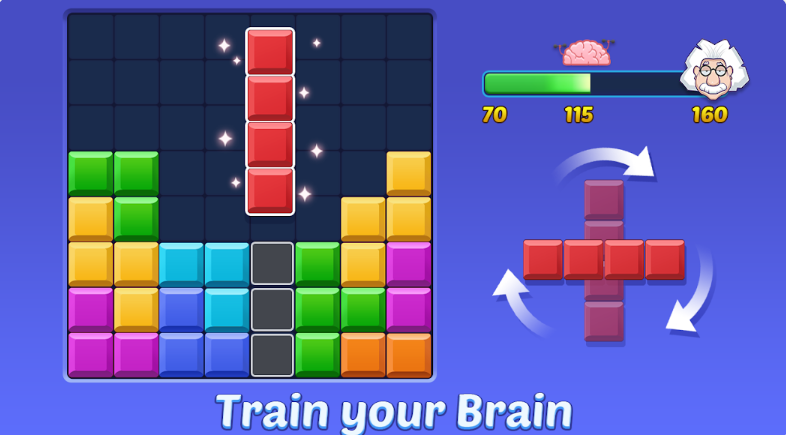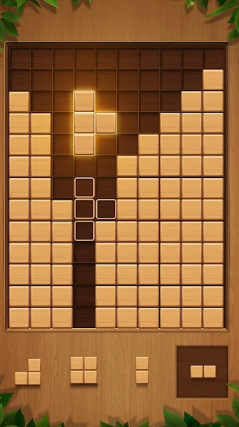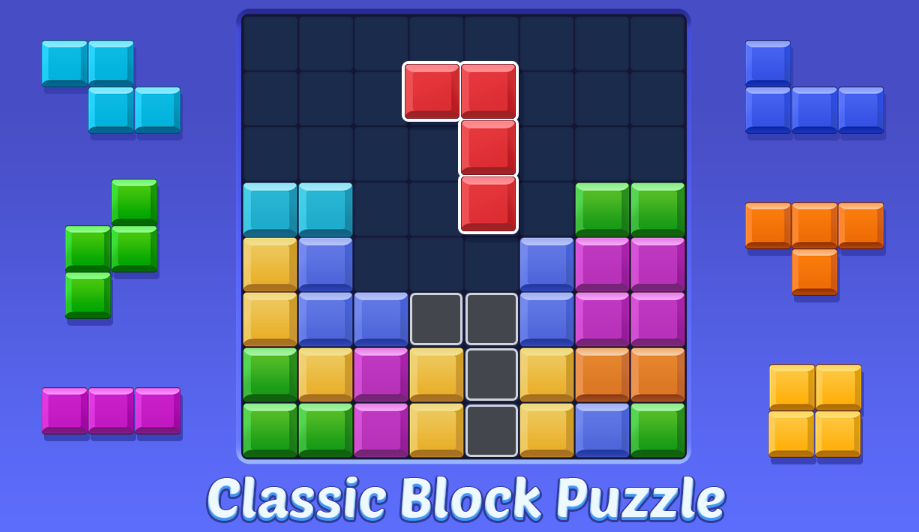Offline puzzle games for iOS have become increasingly popular as they offer engaging and fun experiences without requiring an internet connection. Whether you’re on a long trip, in a place with limited connectivity, or simply prefer not to use mobile data, these games provide an excellent way to pass the time. For players looking to elevate their game, there are several key tactics used by professional puzzle game players. These strategies can help you solve puzzles faster, score higher, and get the most enjoyment out of your favorite games.
In this article, we’ll cover 8 key tactics that the pros use for offline puzzle games on iOS. These tips and tricks will not only improve your gameplay but also enhance your problem-solving skills, making you a more efficient and savvy puzzle solver.

Understanding the Types of Puzzle Games
Before diving into the tactics, it’s essential to understand the various types of offline puzzle games available on iOS. Puzzle games come in many forms, from logic puzzles to jigsaw puzzles, word games to brainteasers, and beyond. Some popular types of offline puzzle games include:
- Logic puzzles: Games like Sudoku, 2048, and Nonogram where reasoning and critical thinking are key.
- Jigsaw puzzles: These involve assembling pieces to form a complete image or pattern.
- Word puzzles: Crossword puzzles, word searches, and anagram games are a great example.
- Brainteasers: These include riddles, visual puzzles, and escape room games that require lateral thinking.
Understanding the type of puzzle game you’re playing will help you apply the right tactics to improve your performance.
1. Master Pattern Recognition
One of the most effective tactics for solving offline puzzle games is mastering pattern recognition. Many puzzles rely on recognizing repeating patterns or understanding how certain pieces interact with each other. By training your mind to notice these patterns, you can solve puzzles more quickly and efficiently.
How to Improve Pattern Recognition:
- Practice identifying patterns in every puzzle you play. For instance, in Sudoku, you’ll often notice numbers appearing in specific sequences or sections. In jigsaw puzzles, the edges or colors of the pieces often give clues about where they belong.
- Play a variety of puzzle games to expose your brain to different types of patterns, making you more adaptable.
- Slow down and focus on the structure of the puzzle. The more you pay attention to the little details, the faster you’ll recognize patterns in the future.
Mastering pattern recognition can significantly reduce the amount of time it takes to solve each puzzle, making it a critical skill for the pros.

2. Prioritize Easy Moves First
Many puzzle games have a mix of simple and complex moves. If you’re stuck on a particularly challenging part of a puzzle, it’s often helpful to step back and focus on the easier moves first. Solving the easier portions can give you a sense of progress, boost your confidence, and help you see the more complex moves more clearly.
How to Prioritize Easy Moves:
- Look for pieces that can only go in one spot, like corners in jigsaw puzzles or numbers in Sudoku.
- If you’re stuck in a word game, try starting with the smaller words or those that have the most obvious letters.
- In logic-based games like 2048, prioritize merging the easiest numbers before tackling the more difficult ones.
By solving easier parts of the puzzle first, you’ll create space and make the more challenging parts less intimidating.
3. Use Process of Elimination
Process of elimination is a vital tactic in many offline puzzle games, especially in logic-based puzzles. When you’re unsure of a move, eliminating the impossible options can help you narrow down your choices.
Applying the Process of Elimination:
- In games like Sudoku or logic grids, systematically rule out impossible numbers or pieces based on the rules of the game.
- In jigsaw puzzles, start by eliminating pieces that clearly do not fit into any available space. This will help you focus on the remaining pieces that are more likely to fit.
- In word games, if you’re stuck, try to think of the remaining letters that could form valid words and eliminate combinations that are unlikely to work.
Using the process of elimination helps you focus on fewer options, making it easier to spot the correct moves.
4. Take Breaks and Return with Fresh Eyes
Sometimes, the best tactic for solving a puzzle is to take a break and return to it with a fresh perspective. When you’ve been staring at a puzzle for too long, it can become harder to see the solution. Taking a short break allows your brain to reset and come back to the puzzle with new insights.
Benefits of Taking Breaks:
- Mental reset: A quick break allows your brain to process the information subconsciously, making it easier to see patterns you missed earlier.
- Prevents frustration: If you’re stuck, a break can help prevent frustration and burnout, which can negatively affect your problem-solving abilities.
- Boosts creativity: Stepping away for a while can help you think outside the box and come up with innovative solutions.
Many professional puzzle solvers recommend taking regular breaks to keep your mind sharp and your focus intact.

5. Work Backwards
Working backward can be an extremely useful tactic in certain types of offline puzzle games. In some cases, it’s easier to figure out the end result and work backward to see how to get there. This can help you identify missing pieces or uncover hidden solutions that weren’t immediately obvious.
How to Work Backwards:
- In games like Sudoku, if you have only a few numbers left to fill, start with the ones that will logically lead to the final solution.
- In jigsaw puzzles, identify the final image or the sections of the puzzle that are already complete and work backward from there.
- In logic puzzles or brainteasers, sometimes figuring out the end goal first will help you reverse-engineer the necessary steps.
This strategy is particularly useful in puzzles where the end result is clear but the path to it isn’t immediately apparent.
6. Track Your Moves
Tracking your moves can be incredibly helpful when you’re working through a challenging puzzle. Some games allow you to undo moves or provide hints, but keeping track of your progress allows you to learn from past mistakes and avoid repeating them.
How to Track Moves Effectively:
- Write it down: For complex puzzles, jot down notes about the moves you’ve made, especially when you’re trying different solutions or strategies.
- Use built-in tools: Many games have features like undo buttons or move trackers. Use these tools to backtrack and explore other options.
- Review previous steps: After making a few moves, take a moment to review your previous steps and check if any mistakes were made.
Tracking your moves will help you identify patterns in your decision-making and improve your problem-solving skills.
7. Use Hints Wisely
While many puzzle games offer hints to help you solve tough sections, it’s essential to use them wisely. Relying on hints too often can make the game too easy and diminish your puzzle-solving skills. However, using hints strategically can help you when you’re genuinely stuck.
How to Use Hints Wisely:
- Save hints for tough moments: Use hints sparingly. Only use them when you’re completely stuck and can’t progress any further.
- Learn from the hints: When you use a hint, try to understand why it works and how it helps you move forward. This can teach you valuable strategies for future puzzles.
- Avoid over-reliance: If you find yourself using hints frequently, it may be a sign to step back and think about the puzzle differently.
Using hints wisely will ensure that you’re still challenged by the puzzle while avoiding frustration when you’re genuinely stuck.
8. Stay Calm and Focused
One of the most important tactics for puzzle solving is staying calm and focused. Puzzle games can sometimes become stressful, especially when you’re on the verge of solving a challenging section. However, keeping a clear head is crucial for making the best decisions.
How to Stay Calm:
- Practice deep breathing: If you feel yourself getting frustrated or stressed, take a few deep breaths to relax and refocus.
- Set a time limit: If a puzzle is becoming too overwhelming, set a timer to give yourself a sense of urgency without adding too much pressure.
- Positive mindset: Keep a positive mindset and remember that solving puzzles is about the process, not just the solution.
A calm and focused approach will help you make better decisions and maintain a steady pace throughout your puzzle-solving journey.

FAQs
What are the best offline puzzle games for iOS?
Some of the best offline puzzle games for iOS include Sudoku, Monument Valley, The Room series, 2048, Brainwell, and Jigsaw Puzzles by MobilityWare. These games offer a variety of challenges, from logic puzzles to brainteasers, and can be played offline.
Can I improve my puzzle-solving skills over time?
Yes, with consistent practice and by applying the strategies mentioned in this article, you can significantly improve your puzzle-solving skills. The more you play, the better you’ll become at recognizing patterns, thinking critically, and solving puzzles efficiently.
Are there any apps to help train my brain for puzzles?
Yes, there are many apps designed to train your brain for puzzle-solving. Apps like Lumosity, Peak, and Elevate offer a variety of games and exercises specifically designed to improve cognitive skills, including memory, logic, and problem-solving abilities.
Conclusion
Offline puzzle games for iOS are a great way to keep your mind engaged while having fun. By mastering key tactics such as pattern recognition, prioritizing easy moves, and using process of elimination, you can become a better puzzle solver. Remember to stay calm, work backward when necessary, and use hints wisely. With time and practice, you’ll find yourself solving puzzles faster and more efficiently, just like the pros.








